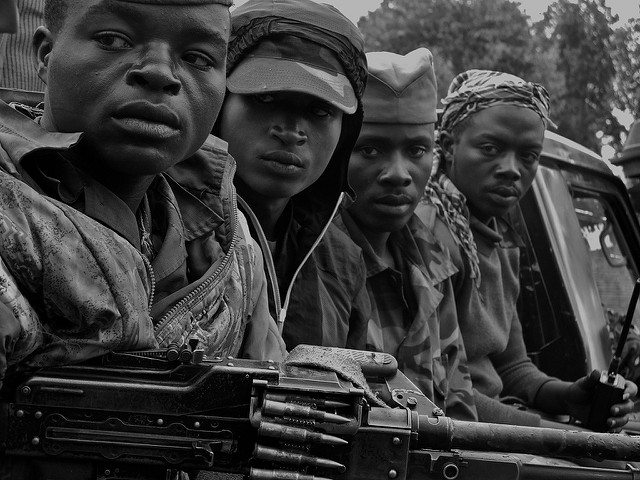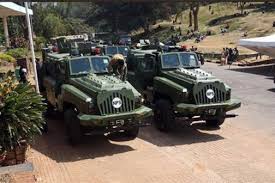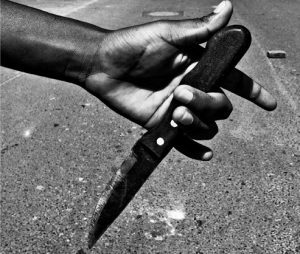According to the annual police crime report, the number of criminal incidents reported rose by 6 percent, from 72,490 in 2015 to 76,986 last year. The figures, announced by Kenya President Uhuru Kenyatta during a state function on Monday, may have risen due to an uptake of additional platforms of reporting crime, such as social media. Over the festive period, police recorded no major criminal incidents due to increased monitoring of social media platforms, such as Twitter, to enhance early detection of criminal activity.
Nevertheless, with 2017 being an election year, security expert’s project that the crime rate may rise yet again owing to mounting political pressure and tension in the build-up to the August general elections. The country’s state of security will therefore be brought into sharp focus, especially as the country draws closer to this year’s polls.
We reckon that these are the biggest threats to your security today:
- Election Tension:
Security agencies across the country expect a surge in criminal activity as has been the case in election years of the past. The possible link between criminal gang activity and political campaigns continues to be under close scrutiny. On December 30th, Interior Cabinet Secretary Joseph Nkaissery released a gazette notice, listing 89 gangs that been outlawed thanks to efforts by the Inspector General of Police, Joseph Boinnet.
As mass voter registration exercises kick off, incidents of riots and civil unrest will likely increase in the coming months as rivals square off in the political arena. State security organisations meanwhile have been gearing up for what will probably be a challenging year ahead. The government made a great statement of intent with the flagging off of 525 vehicles for use by the National Police Service to maintain peace and order countrywide. The latest police recruitment exercise saw 10,000 citizens picked to undergo a 9-month training course at various training colleges in Embakasi and Kiganjo in April 2016. The recruits are set to graduate next month.
- Terrorism:
Truth be told, the country has always been in a state of alert regarding terrorism. The number of terror-related incidents, however, dropped significantly in 2016, with the number of deaths reducing to 16 in comparison to 202 in 2015. The government continues to clamp down on Somali-based extremist group Al Shabaab, reporting that hundreds of young people have been intercepted while on their way to Somalia. Beyond this, over 100 youth have defected from Al Shabaab and continue to assimilate themselves back into society.
While the government believes that the downward trend of deaths in 2016 is due to enhanced capacity, the threat still remains quite real. Terror recruitment cells have gradually shifted focus to women and university graduates, with a report by the Commission for University Education earlier last year indicating that at least 44 students, 17 of them girls, had joined Al Shabaab. This trend may continue into 2017, with the uptake of online radicalism widely seen in the Middle East aiding in recruitment efforts.
- Proliferation of Illegal Firearms:
“A licensed firearm holder was robbed of his gun after he was accosted by thugs as he walked along the street at around 10 pm. He was attacked by three men who strangled him as they ransacked his pockets. They robbed him of his Ceska Pistol, which had 14 bullets, Ksh24,000, his driving license, and other valuables.”-The Standard, 13/01/2017.
Kenya has long struggled with the acquisition of illegal firearms by criminals and 2016 was no different. Particularly during the latter stages of the year, a number of incidents involving thugs breaking into police stations to rob armouries were noted. A few licensed firearm holders were also affected by this crime trend, losing their weapons and ammunition to thugs.
Going into 2017, we have already noted two incidents of licensed firearm holders being robbed of their weapons and other valuables in Nairobi alone. This trend continues to pose a threat to civilian safety as these weapons are later used to perpetrate crime and instil fear among locals. The government, however, continues to step up its efforts in curbing armed crime, with numerous armed thugs being gunned down in recent weeks in Nairobi.
- Juvenile Gangs in the Coast:
This is another threat that received widespread coverage in 2016, especially in Mombasa. Local security agencies continue to struggle to contain increasing criminal gang activity, perpetrated by young members who are between 14-25 years old. The leader of one of the gangs, aged 18, was arrested by authorities in Likoni earlier this month. Seventeen additional suspects have also been recently arrested, two of them armed with a toy pistol and the rest with crude weapons. Fourteen of them were arrested on New Year’s day as they attempted to cross the Likoni channel.
The link between abuse of narcotics and crime has been evident in recent months, leading to more women being used as conduits for the supply of drugs, which has resulted in an ongoing operation against narcotics in the coast. By our count, 17 suspected drug dealers have been arrested in Mombasa and Lamu counties in the past three weeks alone as police step up the fight on drug abuse.
- Cattle-rustling:
The Turkana East Member of Parliament, James Lomenen, narrowly escaped death earlier this week after a peace meeting between the Pokot and Turkana communities went south and ended in chaos. Barely a week ago, two children lost their lives as armed bandits stole over 200 goats along the Turkana-West Pokot border. This security threat, which mostly involves residents in Elgeyo and Marakwet counties, have started hitting closer to home as cattle theft has also been reported in Naivasha, Kitui, Meru, and Isiolo.
Peace meetings and disarmament exercises have gone a long way in containing cattle-rustling, while police and police reservists have been working to recover stolen cattle.
This article was written by Lloyd Gitonga on behalf of Securex Agencies Ltd. Visit www.securexafrica.com to learn more about securing your home and business.











